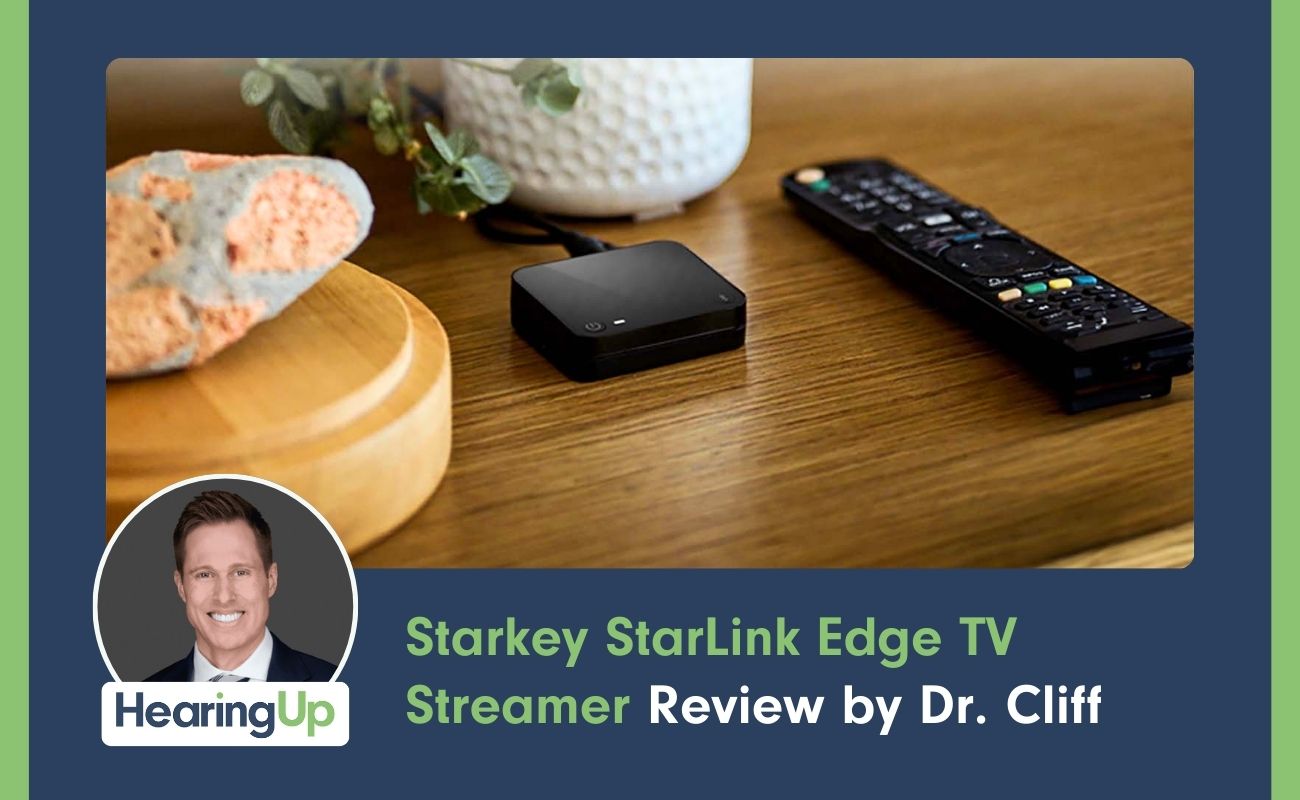If you've been told there's nothing you can do about your tinnitus, this article is for you. Many physicians have limited training about tinnitus causes and treatment options, leading patients to feel discouraged or turn to unproven remedies.
Fortunately, several research-backed treatments can effectively reduce tinnitus symptoms or change how you perceive them. As someone who specializes in tinnitus management, I want to share four proven options that can help. With over a decade of clinical experience treating thousands of tinnitus patients, I've witnessed firsthand how these approaches can transform lives—even for those with severe, persistent symptoms who had given up hope.
Understanding Tinnitus Habituation
Before diving into specific treatments, it's helpful to understand the concept of habituation.
Habituation is the diminishment of a psychological or emotional response to a repeated stimulus. Take this example: imagine moving in with your partner and discovering they have a clock that makes an audible tick every second. While initially annoying, after a few days, you might not even notice it anymore.
The same principle applies to tinnitus. Through habituation, you may still perceive your tinnitus, but without the negative emotional response. Many effective treatments work by promoting this habituation process.
Treatment 1: Cognitive Behavioral Therapy (CBT)
Cognitive Behavioral Therapy is a well-established therapeutic approach that focuses on improving negative interactions between thoughts, feelings, and behaviors. Studies show CBT is effective for 50-80% of tinnitus sufferers in reducing distress and improving quality of life.
CBT components for managing tinnitus include:
- Restructuring thought patterns
- Stress and anxiety management
- Behavioral exposure
- Coping strategies
- Relaxation and mindfulness
Research consistently shows that CBT reduces emotional distress associated with tinnitus, such as anxiety, depression, and irritability. These benefits are often long-lasting.
CBT can be delivered through:
- In-person sessions with a tinnitus specialist or psychologist
- Telehealth appointments
- Digital therapeutic apps
For severe tinnitus, working with a professional who specializes in CBT for tinnitus management is typically more effective than self-guided approaches.
Treatment 2: Tinnitus Retraining Therapy (TRT)
Tinnitus Retraining Therapy combines cognitive behavioral therapy with sound therapy. Based on the neurophysiological model of tinnitus, TRT uses sound generators or hearing aids to provide low-level neutral sounds like white noise or nature sounds.
These sounds are typically applied at the "mixing point" – a volume level where the sound doesn't completely mask tinnitus but blends with it. This helps the brain reclassify tinnitus as a neutral or insignificant sound, aiding habituation.
For those with existing hearing loss, TRT may include combination devices that provide both sound therapy and amplification to support hearing and tinnitus management.
Studies show TRT is effective for about 60-80% of tinnitus sufferers within 6-12 months. While it may take some time to experience the full benefits, TRT remains one of the most effective options for treating tinnitus.
Treatment 3: Properly Fit Hearing Aids
A remarkable 90% of individuals with tinnitus also have hearing loss. For many, tinnitus is caused by the lack of auditory information reaching the brain.
Approximately 60-80% of individuals with tinnitus experience symptom reduction when wearing properly programmed hearing aids. Some even experience "residual inhibition," where tinnitus perception remains reduced for a period after removing the hearing aids.
The amount of relief depends on how well your hearing aids are programmed, but in many cases, the reduction in tinnitus can be almost immediate. If you have untreated hearing loss alongside tinnitus, hearing aids often provide the best treatment option for both conditions.
The Connection Between Hearing Loss and Tinnitus
The strong correlation between hearing loss and tinnitus explains why hearing aids can be so effective. When hearing loss occurs, the brain receives less auditory input from the environment. This reduction in normal sound stimulation can lead to hyperactivity in the auditory pathways, which manifests as tinnitus.
Well-programmed hearing aids restore this missing auditory stimulation, effectively "feeding" the brain with the sounds it's been missing. This can calm the hyperactive neural pathways responsible for tinnitus. For best results, hearing aids should be fitted by an audiologist who specializes in tinnitus management and follows best practices like real ear measurement to ensure proper programming.
Treatment 4: Bimodal Neuromodulation
Bimodal neuromodulation is an advanced therapeutic approach that combines stimulation of two sensory pathways to change brain activity and reduce tinnitus impact. The Lenire tinnitus treatment device is one such option that combines custom-tailored sound therapy through Bluetooth headphones with mild somatosensory stimulation via a tongue tip stimulator.
This approach is already used to manage other health conditions such as chronic pain and insomnia. For tinnitus, bimodal neuromodulation adjusts activity in the auditory cortex and other brain areas responsible for tinnitus perception.
By stimulating two sensory pathways simultaneously, the treatment is more effective than stimulating just one pathway alone. Clinical trials show impressive results:
- 70.5% of participants experienced clinically meaningful tinnitus reduction when sound therapy alone provided no meaningful reduction
- 88.6% of treatment participants would recommend the device for tinnitus treatment
- 89.2% of patients saw benefit in as little as 12 weeks in real-world analysis
This makes bimodal neuromodulation one of the most effective tinnitus treatment options available, based on both clinical research and real-world patient results.
The Science Behind Neuromodulation
Neuromodulation works by leveraging the brain's neuroplasticity—its ability to reorganize itself by forming new neural connections. Tinnitus often involves maladaptive neuroplasticity, where the brain has incorrectly "learned" to perceive a sound that doesn't exist externally.
Bimodal neuromodulation introduces carefully timed patterns of auditory and somatosensory stimulation that encourage positive neuroplastic changes. This helps reset the abnormal neural activity patterns associated with tinnitus. Research shows that stimulating multiple sensory systems simultaneously creates stronger and more lasting changes in brain activity than single-modal approaches.
Finding The Right Treatment For You
While all four treatment options have proven effective for tinnitus, what works best varies from person to person. I always recommend consulting with a hearing care professional who specializes in tinnitus to determine which option might work best for your specific situation.
Only after a comprehensive hearing and tinnitus evaluation should a recommendation be made for one or more of these treatment options. With proper professional guidance, you need never again be told there's nothing you can do about your tinnitus.
Combining Treatment Approaches for Better Results
While each treatment can be effective on its own, many tinnitus specialists recommend combining approaches for maximum benefit. For example, properly fitted hearing aids might be complemented with CBT techniques, or TRT might be enhanced with elements of bimodal neuromodulation.
Your treatment plan should be personalized based on your specific tinnitus characteristics, hearing profile, lifestyle needs, and treatment goals. Some patients experience immediate relief with certain approaches, while others may require a combination of treatments implemented over time for optimal results.
What to Expect During a Tinnitus Evaluation
A comprehensive tinnitus evaluation typically includes several components to identify the underlying causes and characteristics of your tinnitus:
- Detailed case history and symptom assessment
- Comprehensive hearing evaluation
- Tinnitus pitch and loudness matching
- Minimum masking level testing
- Residual inhibition testing
- Questionnaires to measure tinnitus impact on quality of life
These assessments help your provider understand your specific tinnitus experience and develop a targeted treatment plan. The evaluation process typically takes 60-90 minutes but provides invaluable information for customizing your treatment approach.
Get Expert Tinnitus Care from HearingUp Providers
HearingUp network providers follow best practices in hearing healthcare, including advanced tinnitus management. Each provider has been personally vetted by Dr. Cliff Olson to ensure comprehensive, evidence-based care.
If you're struggling with tinnitus, don't settle for being told nothing can be done. Visit HearingUp.com to find a qualified provider near you who can evaluate your condition and recommend the most appropriate treatment options for your specific situation.
If you're interested in learning more about bimodal neuromodulation or finding out if you're a candidate for the Lenire tinnitus treatment device, visit lenire.com to find an approved provider in your area.





.jpg)



